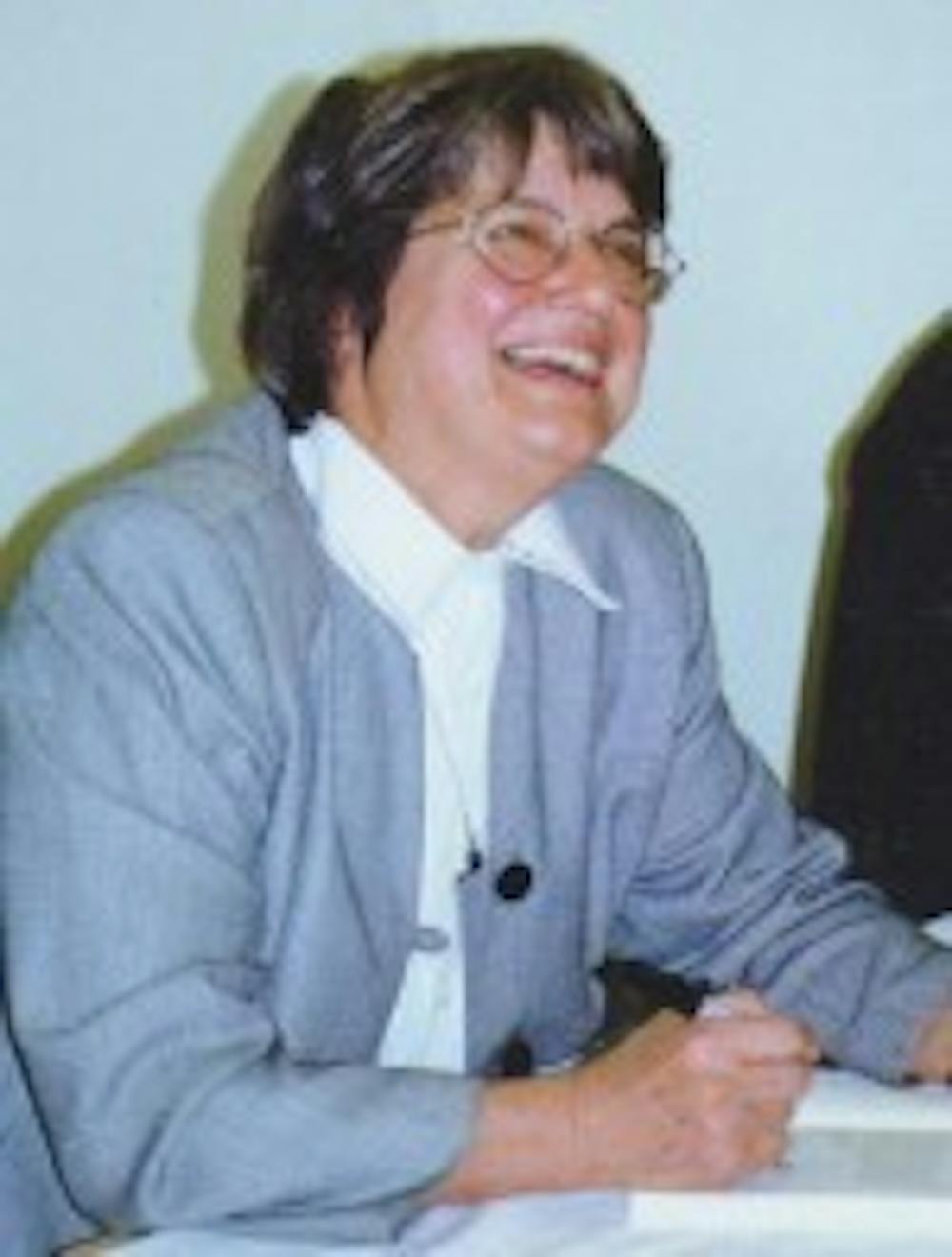Sister Helen Prejean, an outspoken anti-death penalty activist and author of the best selling novel, "Dead Man Walking" - which was later turned into a movie directed by Tim Robbins - spoke at Buffalo State College on Tuesday night, sharing her viewpoints on why the death penalty is unconstitutional and immoral.
According to Prejean, her interest in the death penalty began in 1982 when Chava Colon from the Louisiana Coalition on Jails and Prisons asked her to be the pen pal of Patrick Sonnier, a death-row inmate in Louisiana.
Prejean said Sonnier, who was convicted of killing two teenagers after their prom, never asked her for anything, such as money or prison visits - he was just grateful someone found him.
According to Prejean, she promised to visit Sonnier, and told him, "You will not die without seeing one loving face."
Prejean said her opposition to capital punishment is based on three key issues, the first being that many people who may be innocent are sentenced to death.
Her example was Anthony Porter, a death-row inmate who, 14 years after his conviction, was proven innocent by three student journalists from Northwestern University.
Prejean said one of the jurors later admitted he or she felt Porter was innocent, but due to group pressure, went along with the rest of the jurors, because, "(Porter) just didn't look right."
The second reason Prejean opposes capital punishment is because it seems to target poor people.
"If you are poor, the court hears nothing," she said.
Her third concern is that racism contributes to who receives the death penalty and who is allowed to live. According to Prejean, the death penalty is sought only when victims are white and not considered for cases where victims come from black families.
Prejean also talked about experiences with Sonnier's victims' families and how each one approached the decision of Sonnier's execution differently.
Although one of the victim's fathers opposed the death penalty, he did not speak out against Sonnier's execution because he felt pressured by the other victim's family.
In contrast, Prejean experienced a much different attitude toward the death penalty when talking to the father of a victim raped and murdered by another death row inmate with whom she was in close contact named Robert Lee Willie.
During the execution, the father of Willie's victim said, "Anybody got any whiskey? Anyone want to dance? He died too quickly; I hope he burns in hell."
According to Prejean, capital punishment contradicts the Eighth Amendment of the Constitution, which states, "No one shall be subjected to torture or to cruel, inhuman or degrading treatment or punishment."
The death penalty is also economically impractical, Prejean said. She cited statistics from the Death Penalty Information Center, which show that a single death penalty case, from arrest to execution, ranges from $1 million to $7 million, but in cases resulting in life sentences, the average cost per inmate is approximately $500,000.
"(Anti-death penalty activists) do what we do because of the integrity of it and I will continue doing this until the day I die," Prejean said.





